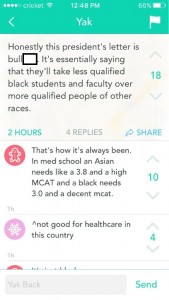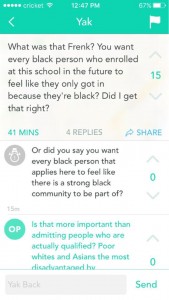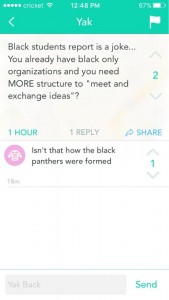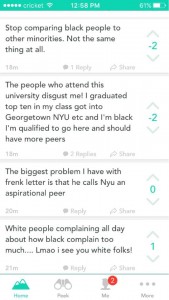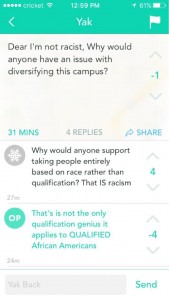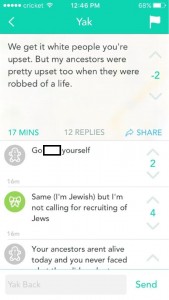University of Miami President Julio Frenk released a letter Thursday morning detailing the school’s plans to promote inclusivity. The plan involves admitting and matriculating “the largest percentage of black students among our peer institutions,” in addition to directing more resources toward the Office of Multicultural Student Affairs (MSA).
See More: President Frenk strives to foster campus inclusivity
In response to Frenk’s letter, members of the UM community took to the anonymous social media app Yik Yak to share their thoughts and arguments. Posts were both for and against Frenk’s letter.
See More: President Frenk’s full letter to the UM community
United Black Students President Te’Quan Taylor was not surprised by the anonymous posts.
“It seems that every time progress is made, or seemingly made, students take to Yik Yak, an anonymous social media platform, to voice their concerns,” Taylor said over email. “I am ashamed that a portion of our student body thinks that an increase in black students and faculty is synonymous with a decrease in qualifications. That simply isn’t true.”
Taylor disagreed with students’ use of an anonymous medium to air their concerns.
“If we aren’t able to have these critical conversations with individuals from completely different backgrounds who have disparate views, then there is no hope for understanding,” he said. “Conversation drives understanding. Understanding drives progress.”
Similar reactions were had in December of 2014 after a “Black Lives Matter” protest happened on campus. More than 200 students protested the grand jury decision not to charge Officer Darren Wilson for the shooting of Michael Brown.
See More: Dramatic ‘Black Lives Matter’ demonstration gives voice to voiceless
The protest sparked an online conversation about racial issues at UM after racist comments were posted to Yik Yak. Former UM President Donna E. Shalala and students had back-and-forth dialogue about the reactions to the protest.
Ultimately, Shalala established the “Task Force to Address Black Students’ Concerns” in February 2015 to assess campus climate for black students.







